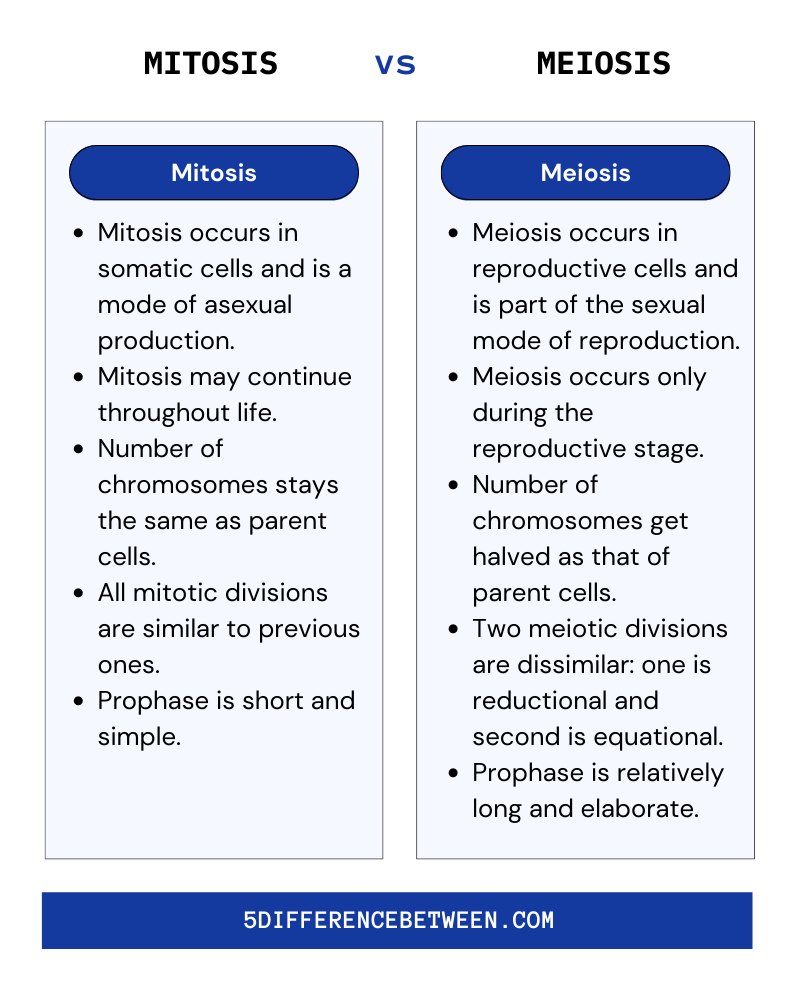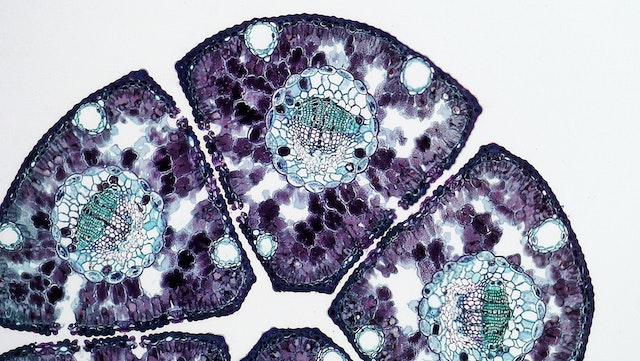Mitosis and meiosis are two types of cell division processes in which a parent cell divides into two or more daughter cells. Mitosis is a type of cell division that results in the formation of two daughter cells with the same number and type of chromosomes as the parent cell, whereas meiosis results in the formation of four daughter cells with half the number of chromosomes as the parent cell. Living organisms require both processes in order to grow, develop, and reproduce. The difference between Mitosis and Meiosis would be now discussed in detail.
What is Mitosis ?
Mitosis is a type of cell division that produces two identical daughter cells from a single mother cell. The nucleus divides into two equal parts during this process, each surrounded by its own membrane. This process is required for cell growth, repair, and replacement. It is also required for multicellular organisms to develop. The chromosomes in the nucleus condense and become visible during mitosis.
Also Read > Difference Between Flora and Fauna
Centrioles split near the nucleus and migrate to opposing sides of the cell. As the process progresses, the nuclear envelope degrades, the chromosomes align in the center of the cell, and the spindle fibers attached to each chromosome pull them apart. As a result, two daughter cells are formed with identical genetic material. Mitosis is required for all organisms to survive.
What is Meiosis?
Meiosis is a cell division process that produces gametes (sex cells) with only one copy of each chromosome. This process is essential for sexual reproduction because it ensures the genetic diversity needed for healthy offspring. Meiosis begins with DNA replication, which results in two sets of chromosomes that are identical. When these chromosomes pair up and exchange genetic material, this is referred to as cross-over. This recombination of genetic material allows for greater variation in gametes.
The two sets of chromosomes are then separated into two distinct cells, each with a single set of chromosomes. These cells divide once more, yielding four cells with a single copy of each chromosome. These cells are gametes, and when they combine with another gamete, they form a new individual. Meiosis is required for sexual reproduction because it allows for genetic variation between parents and children.
Mitosis Vs Meiosis

So it can be concluded that the difference between Mitosis and Meiosis is that Mitosis is a type of cell division that results in the formation of two daughter cells that have the same number of chromosomes as the parent cell. Meiosis is a type of cell division in which four daughter cells are formed, each with half the number of chromosomes as the parent cell. Mitosis is a simple process that duplicates genetic material, resulting in nearly identical daughter cells. Meiosis is a more complex process that involves two rounds of cell division in a row and results in the formation of four distinct daughter cells. Both processes are necessary for cell replenishment in the body, but the outcomes are quite different.






